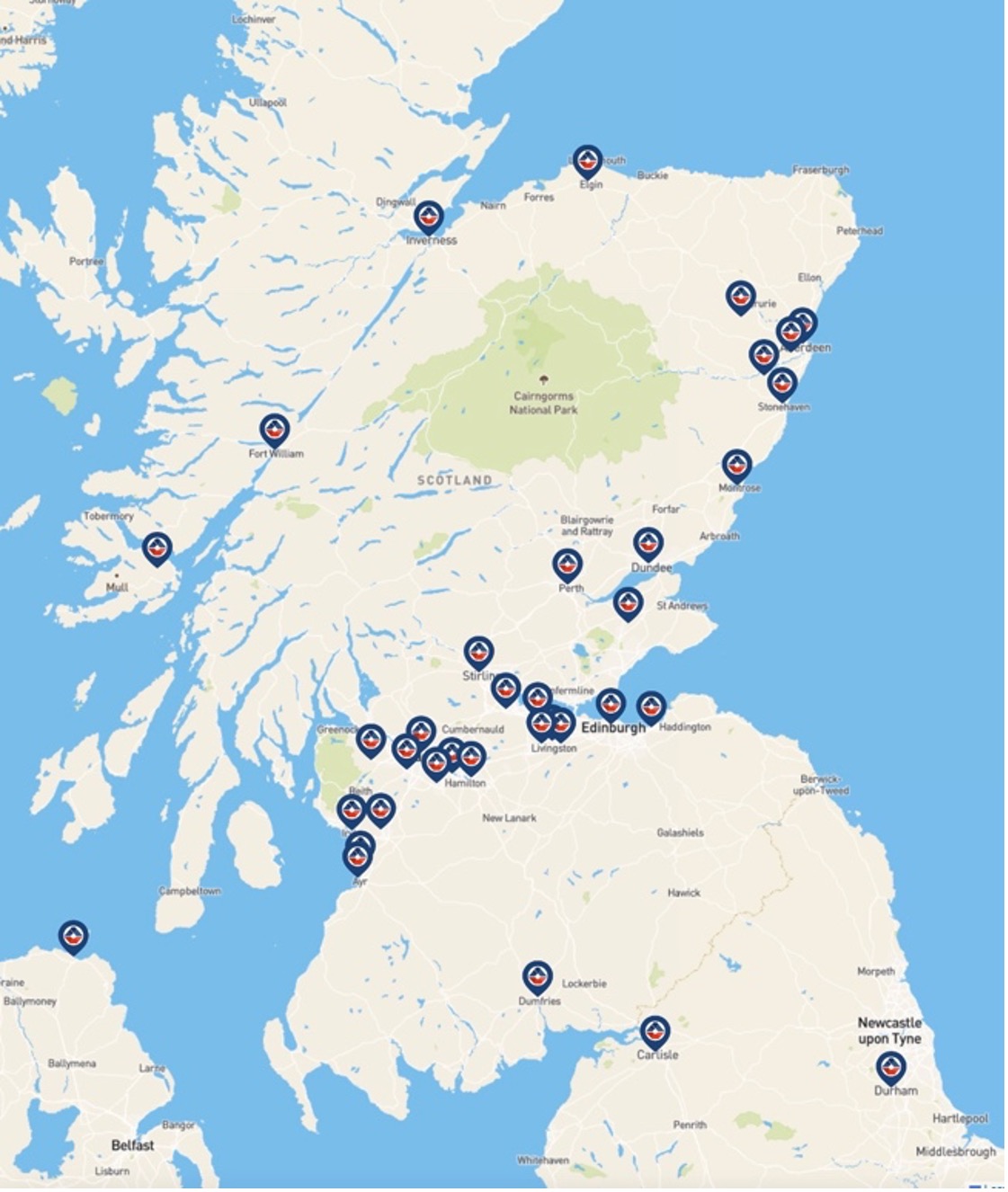The challenges we face in the Scottish construction market
The Scottish construction market has always been a vital sector of the UK’s economy. However, like any other industry, it faces its fair share of challenges. From economic uncertainties to regulatory changes and environmental concerns, the Scottish construction market is navigating a complex landscape. In this article, we will delve into some of the key challenges facing this sector.

Thrudeck Scottish projects insight
We are sure it’s of no surprise to many of you who already work in the Scottish construction market, that the majority of major construction projects is focused towards our two larger cities, Glasgow and Edinburgh. It might be surprising just how many of our tenders are focused around these two cities, with contracts in the Glasgow (53 tenders) and Edinburgh (35 tenders) and the surrounding local areas making up almost a quarter of all our quotes in the last 12 months alone.
Areas such as Dundee, Inverness, Irvine and Prestwick making up ~14% of the next largest group of tenders (30 in total). It’s true to say that the scale of the projects we tender and provide quotes for, in terms of contract size, is encouraging.
We at Thrudeck are based in Coatbridge, but we are happy to work on contracts anywhere in Scotland (and also into N. Ireland, Ireland and northern England), not just the areas local to us, from the hustle and bustle of city-centres to the quiet sedate countryside … in fact, we’ve worked on some stunning rural buildings over the years with the most amazing scenery to admire – we are lucky to live in Scotland!
One of the most pressing challenges for the Scottish construction market is economic uncertainty. This uncertainty can be attributed to factors like Brexit, global economic fluctuations, and public health pandemics. These events have led to fluctuations in demand for construction projects, making it difficult for companies to plan and invest in the long term. Many construction firms are hesitant to take on major projects without a clear understanding of future economic conditions.
Another significant challenge facing the Scottish construction market is a shortage of skilled labour. The industry has struggled to attract and retain skilled workers, including architects, engineers, project managers, and tradespeople. This shortage has led to increased competition for available talent, driving up labour costs and potentially impacting project timelines. Moreover, the aging workforce in the construction sector poses a long-term problem, as many experienced workers are retiring, leaving a gap that is challenging to fill.
Environmental Concerns
Environmental concerns have grown in prominence in recent years, affecting the construction market significantly. Sustainability and eco-friendliness are now top priorities in the industry. Meeting stringent environmental standards can be costly, and construction firms must invest in green technologies, materials, and practices to stay competitive. Additionally, the need to reduce carbon emissions and adopt eco-friendly construction methods poses logistical challenges for many companies.
The industry relies heavily on a global supply chain for materials, equipment, and components. However, the past few years have witnessed significant disruptions in global supply chains. Delays in the delivery of essential materials have led to project delays and increased costs. Moreover, supply chain disruptions have contributed to inflationary pressures, further impacting the profitability of construction firms.
Infrastructure Investment
The level of infrastructure investment by the government is critical to the health of the construction market. While the Scottish government has expressed its commitment to infrastructure development, budget constraints and political factors can impact the timing and scope of infrastructure projects. Delays in public sector investments can have a cascading effect on the entire construction industry.
The Scottish construction market faces numerous challenges that require innovative solutions and adaptability. To thrive in this environment, construction firms must stay agile, embrace sustainable practices, invest in technology and training, and engage in proactive collaboration with stakeholders to overcome these challenges and ensure the continued growth of the industry.




